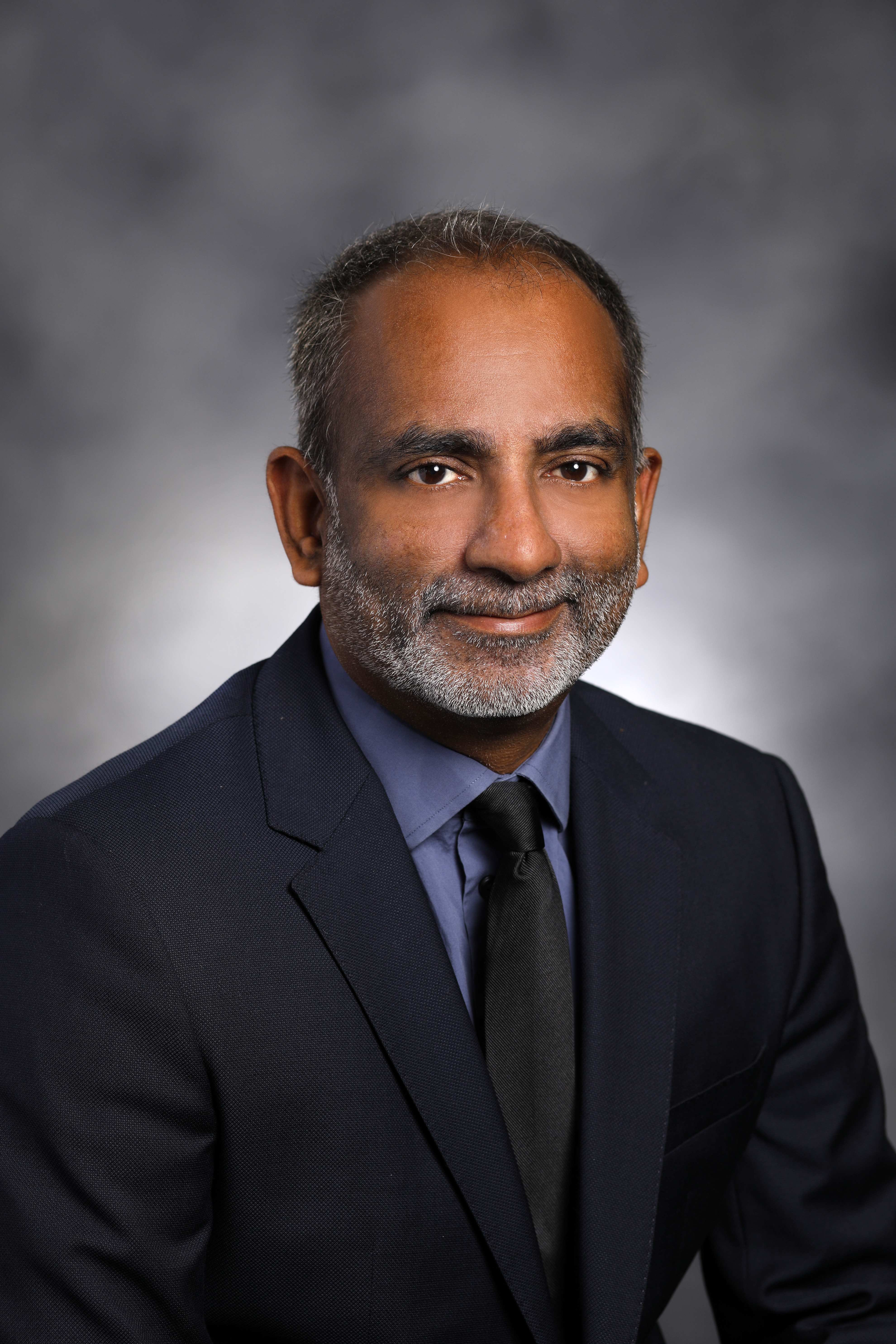Research & Technology
MSU and Spectrum Health Researchers Team Up to Find New Treatments for “Orphan Diseases”
These understudied disorders afflict up to 25 million Americans

Surender Rajasekaran, MD MPH, a pediatric intensivist working in critical care medicine who also serves as medical director of research at Helen DeVos Children’s Hospital.
Grand Rapids, Mich., October 16, 2019 – The National Institutes of Health has awarded a Michigan State University researcher a $2.1 million, five-year grant to search vast databases of existing drugs.
Many of the drugs are already approved for treating other disorders, but some could be adapted to treat what often are called “orphan diseases” because of their rarity.
An extension of the project’s clinical component also received $867,000 to fund innovative uses of electronic health records from The Spectrum Health – Michigan State University Alliance. The Alliance represents Spectrum Health’s initial $55 million investment to support the medical school facility plus an additional estimated $30 million over the ensuing decade to enhance research.
Bin Chen, PhD, is on a mission to help find new or better treatments for an estimated 6,000 diseases considered too rare to attract much research.
“Although individually those diseases afflict relatively few people, combined they are suffered by about 25 million Americans, some whose illnesses are life-threatening,” said Chen, an assistant professor in the College of Human Medicine’s Departments of Pediatrics and Human Development, and Pharmacology and Toxicology.
An orphan disease generally is defined as one that affects fewer than 200,000 patients. Many are so rare that pharmaceutical companies are unwilling to invest in finding treatments.
Chen’s study, however, will look at some 12,000 compounds that already have been developed and could be repurposed for treating understudied diseases. Using a high-tech approach called next generation sequencing, a team of researchers led by Chen plans to match the molecular and genomic characteristics of rare diseases against databases showing which compounds act on those characteristics.
Chen will lead a team of experts in informatics, statistics, computer science, biology and medicine from MSU, Stanford University, the University of California at Berkeley, and Spectrum Health.
Initially, the research will focus on three understudied diseases: multiple organ dysfunction syndrome (MODS), a type of brain tumor called diffuse intrinsic pontine glioma, and a form of liver cancer called hepatocellular carcinoma. Chen’s earlier research identified an anti-parasite drug called Niclosamide that could be repurposed to treat hepatocellular carcinoma. Under the current study, he hopes to optimize Niclosamide so that it can be used in clinical trials.
“Although the new study initially will focus on those three diseases, the same approach could be used to find treatments for other understudied diseases,” Chen said.
Chen’s clinical counterpart and co-investigator at Spectrum Health is Surender Rajasekaran, MD MPH, a pediatric intensivist working in critical care medicine who also serves as medical director of research at Helen DeVos Children’s Hospital.
The study dovetails with one of Rajasekaran’ s primary research objectives: to better understand how and why children suffer from organ failure in the Pediatric Intensive Care Unit (PICU). Studies carried out over the past three decades show that any disease or trauma can potentially lead to organ failure, Rajasekaran said.
“In the unique group of patients whose disease progresses into multiple organ dysfunction syndrome, it is that organ failure that leads to death,” Rajasekaran said. “It could result from a common infection like the flu or being involved in a motor vehicle accident.”
“It is frustrating that all our scientific understanding has not led to any meaningful change in the way we treat these patients,” he added. “That is why collaborating with Dr. Chen is of the utmost importance as we can leverage his expertise into fundamentally changing the way we care for children in the ICU.”
Dr. Rajasekaran seeks to understand how the initial precipitating factors lead to organ failure and to understand its interaction with his patients’ genetics.
“I am interested in leveraging the human genome to provide and design lifesaving therapies for children who are the most vulnerable amongst us,” Rajasekaran said. “No two children are the same, so it makes sense to use information from their genetic characteristics to design therapy that is unique to them, leading to more effective and potentially novel therapies.”
Such research would not have been possible a decade or so ago, said Chen, who holds degrees in chemistry and informatics, but the exponential increase in scientific data and the development of powerful computer systems now make it possible.
Chen said he often receives emails from patients and family members of patients suffering rare diseases, hoping for new treatments.
“I print them all out to remind me every day,” he said. “It keeps reminding me the priority of my research. I need it to stay focused.”
Study Title and Grant Information
“Repurpose open data to discover therapeutics for understudied diseases”
NIH National Institute of General Medical Sciences R01
Study Date: 09/01/19 – 07/31/24
Award Amount: $2,117,273.00
PI: Bin Chen (MSU)
Spectrum Health-MSU Big Data Collaborative Program
Spectrum Health-MSU Alliance Cooperation
Study Date: 07/01/2019 – 06/30/2022
Award Amount: $867,744
PI: Bin Chen (MSU), Nicholas Duesbery (Spectrum Health)
###
About Michigan State University College of Human Medicine
Since 1964, Michigan State University College of Human Medicine has drawn upon MSU’s land grant values to educate exemplary physicians, discover and disseminate new knowledge and respond to the needs of the medically underserved in communities throughout Michigan. The medical school’s statewide footprint includes seven community campuses: Flint, Grand Rapids, Lansing, Midland Regional, Southeast Michigan, Traverse City and the Upper Peninsula Region. MSU’s Grand Rapids Research Center has centers of excellence in Parkinson’s disease research and women’s health research. The college’s Flint campus is home to the MSU-Hurley Children’s Hospital Pediatric Public Health Initiative and MSU’s public health research. For more information, visit the Michigan State University College of Human Medicine Web site at www.humanmedicine.msu.edu.
Contact:
Tim Hawkins
Media Relations
Office: 616.486.6091
Mobile: 616.443.0361
Email: timothy.hawkins@corewellhealth.org

